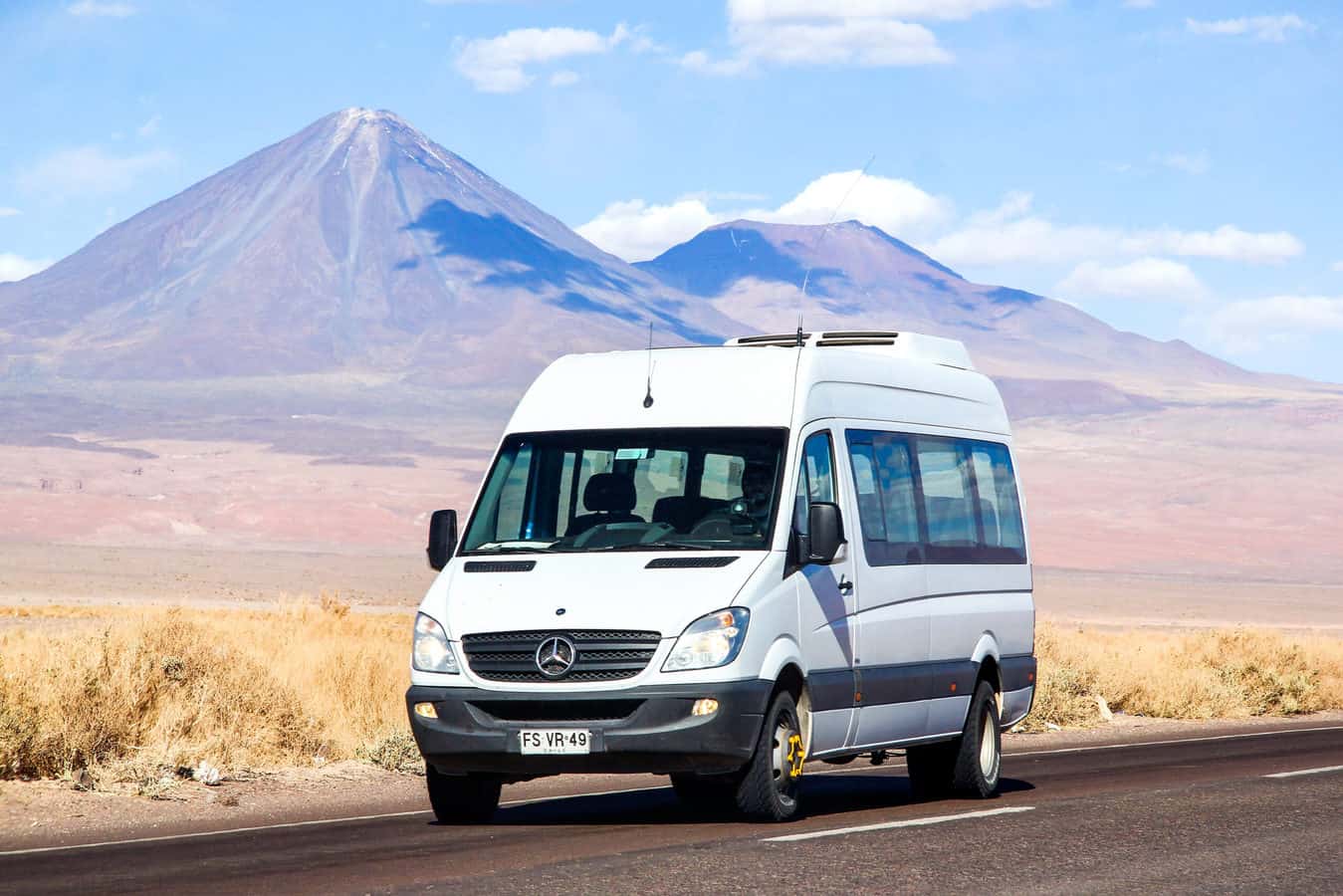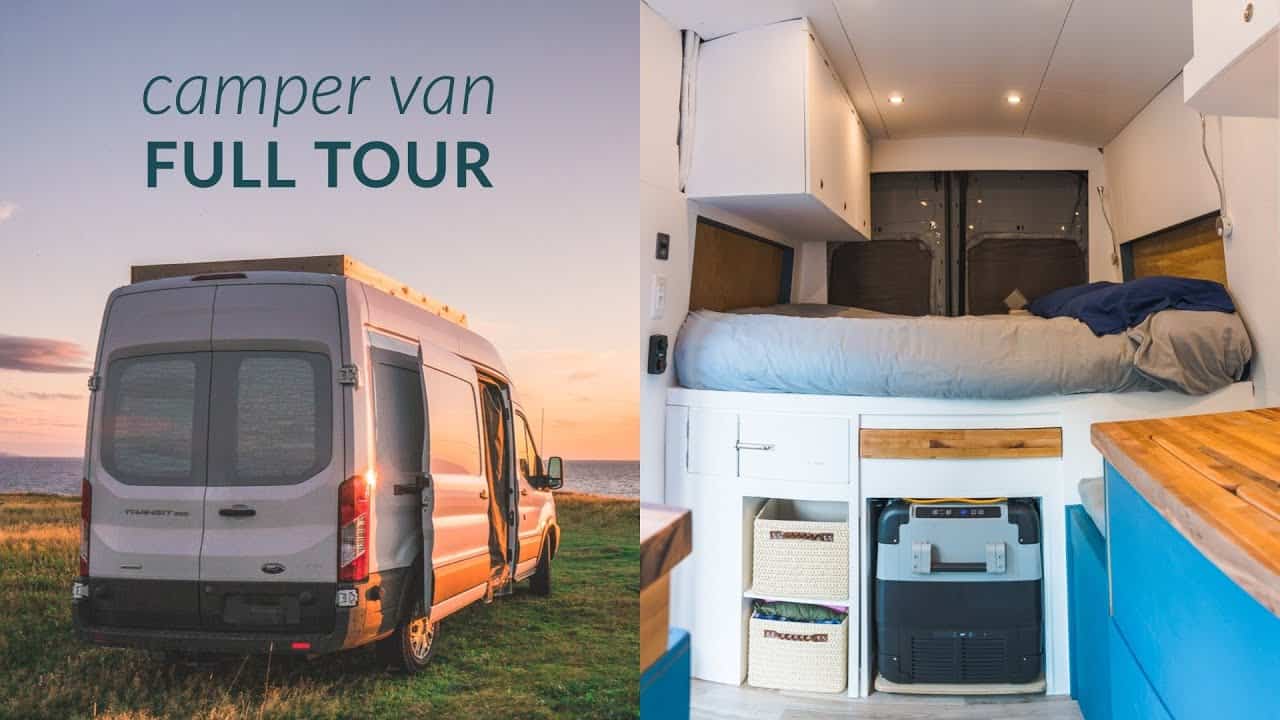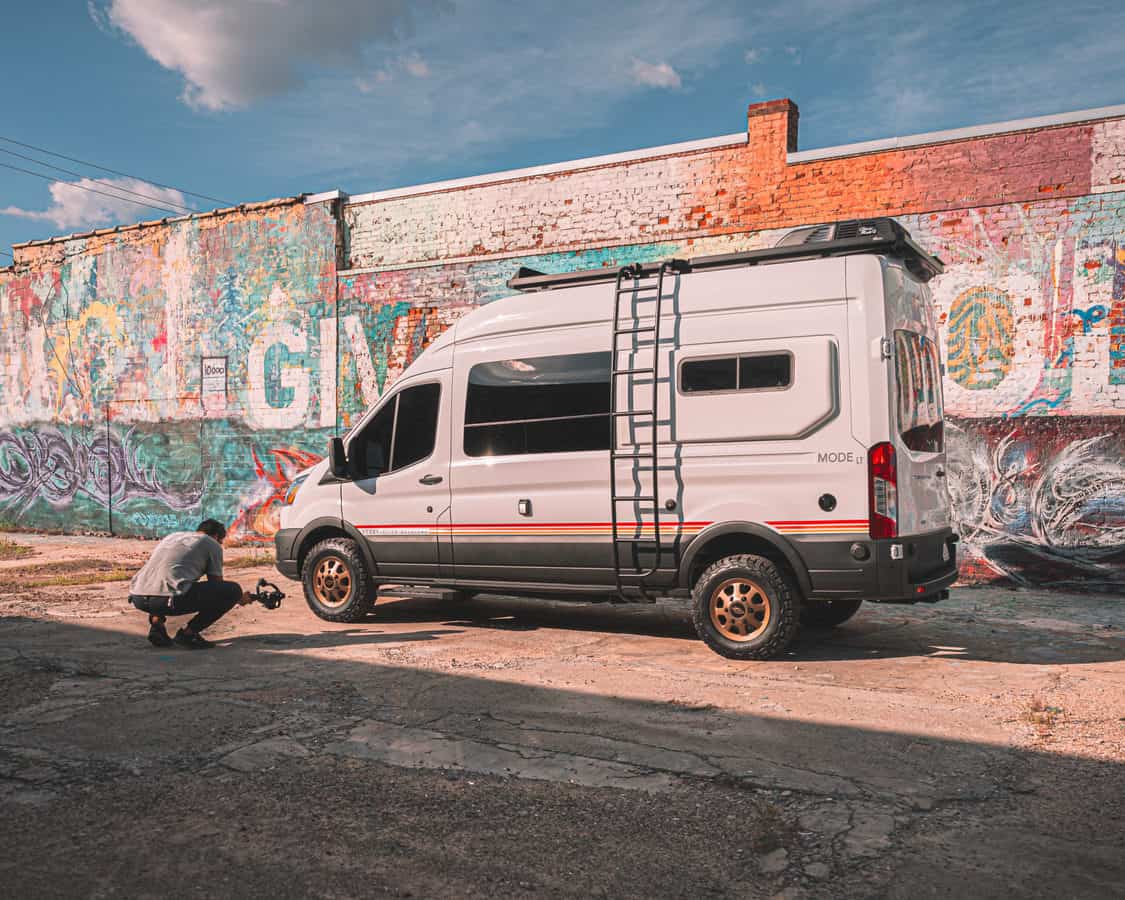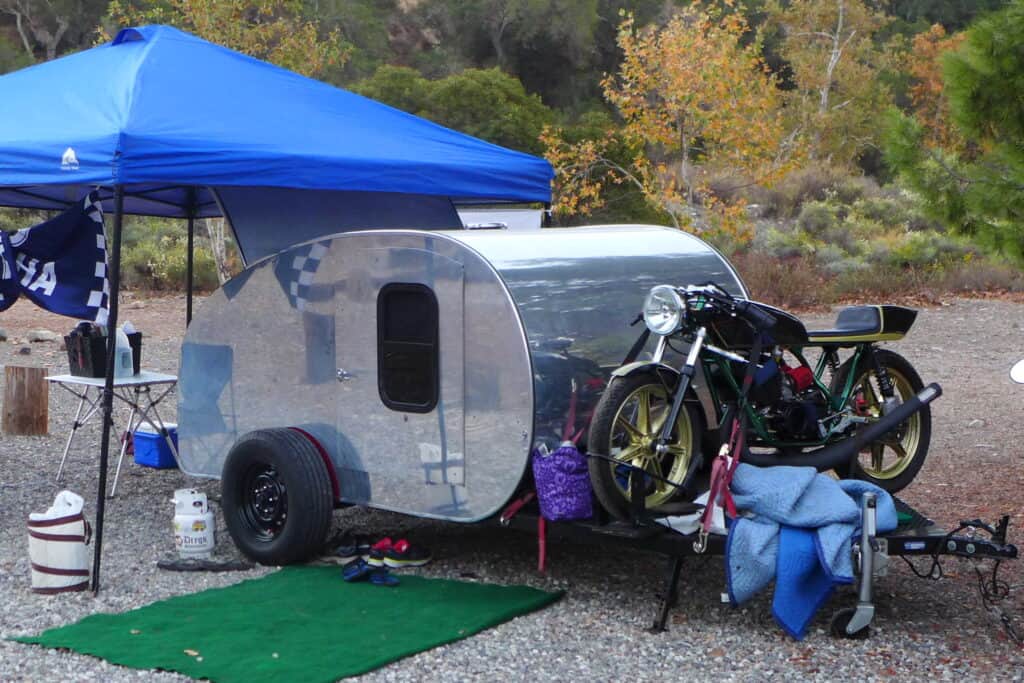
Why You May Want To Avoid Small Campers
Small campers are great for solo travelers or RVing couples. It’s nice to be as compact as possible when driving or hauling your RV so you can get your rig into tight spaces, save money on gas, take your bedroom, bathroom, and kitchen to remote locations, and have all the conveniences of home right there with you. But with the reduced size, there are limits to functionality.
Teardrop trailers
We saw a Canadian couple camping in a teardrop trailer on the Oregon coast and it didn’t stop raining for an entire week while we were all there in that park. The teardrop was being pulled by a small sedan, and the couple spent all their time either in the car or in the trailer.
A small rig like that is basically a bed in a hard shell. It may be a great augmentation to an outdoor lifestyle, but if you’re in a climate that doesn’t really permit you to enjoy the outdoor space, it may quickly lose its appeal.
Alpine trailers, pop-ups, R-Pods, rooftop tents, and cab-over campers are a little roomier than a teardrop and may at least provide enough space to allow you to sit upright or stand, but these smaller campers are still designed to augment your outdoor camping experience, so you need to camp in climates that also support that lifestyle.
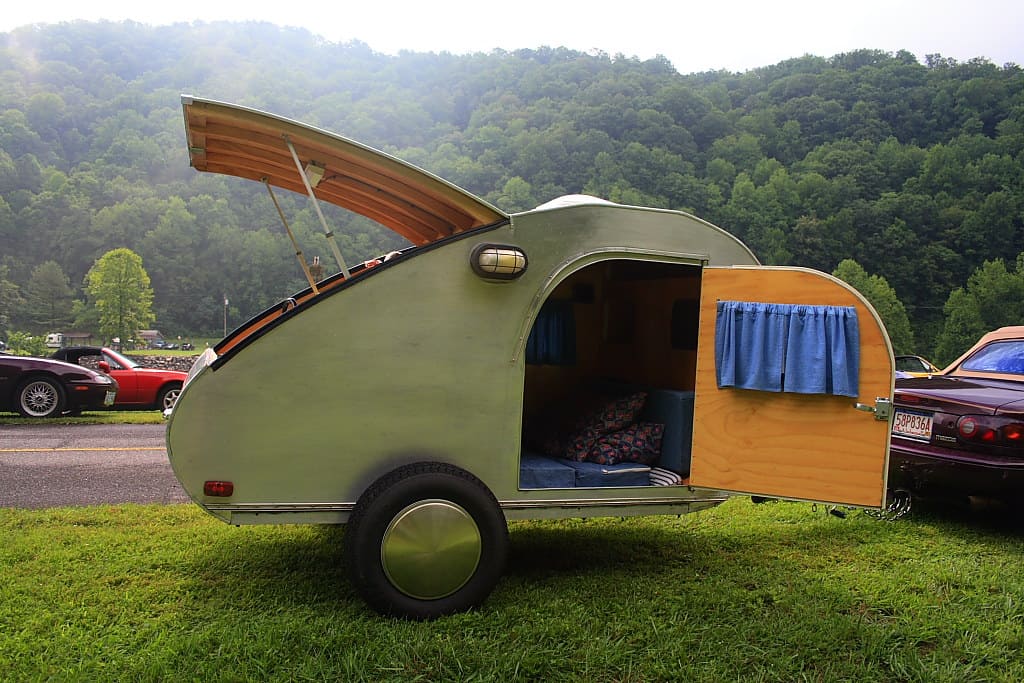
Class B RVs
Camper vans and Class B RVs may still be too small to offer a fully functional indoor camping experience, but now you’re getting into rigs that are designed with many more features, they can be much more expensive than an R-pod or pop-up trailer.
The newer Sprinter class RVs have storage, a stove, refrigerator, sink, countertop, shower, entertainment center, sitting area, driver’s compartment, holding tanks, and some even have more than one bed. They seem to have all the features of their larger counterparts and it seems like they have all the necessities for enjoying an indoor camping experience if you’re stuck in some foul weather, but are these small camper systems really sufficient to support an indoor lifestyle?
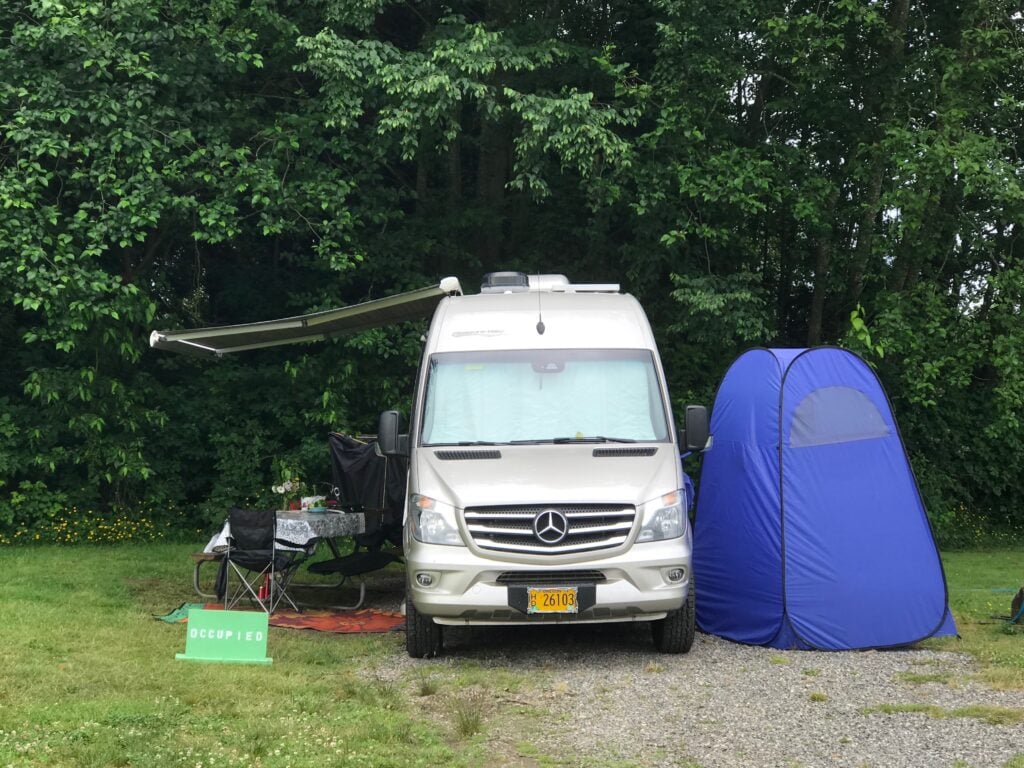
We talked to a couple who had just purchased a Class B RV to begin their full-time travel experience. After exchanging pleasantries about our dogs, we asked how they like their new RV and both of them immediately said they wished they had purchased something larger. They appreciated the fact that they could drive their van-sized RV to any place you could take a standard size truck, but they said the living quarters were too cramped for them and their dog.
Class B+ RVs
On another occasion, we camped next to a single woman who was just beginning her full-time RV experience, and she too had just purchased a new Class B+ RV. She was pulling a trailer behind her rig, so it was a little less nimble than an RV with no tow vehicle, and she was very frustrated by the smallness of all the features in her rig.
She said the shower was almost too small to function as a shower, and she said the sink in her galley was the size of a football. Her holding tanks were so small that she wouldn’t be able to boondock for more than a couple of days, even if she was very careful about her water usage. In fact, her black and gray water tanks required almost daily flushing.
She acknowledged the benefit of being able to go anywhere in this rig, but she previously owned a larger Class C RV and she said she had never been restricted in her travels in the Class C RV. I have no idea why she chose the Class B coach over another Class C, but she did, and I believe she regretted that decision.
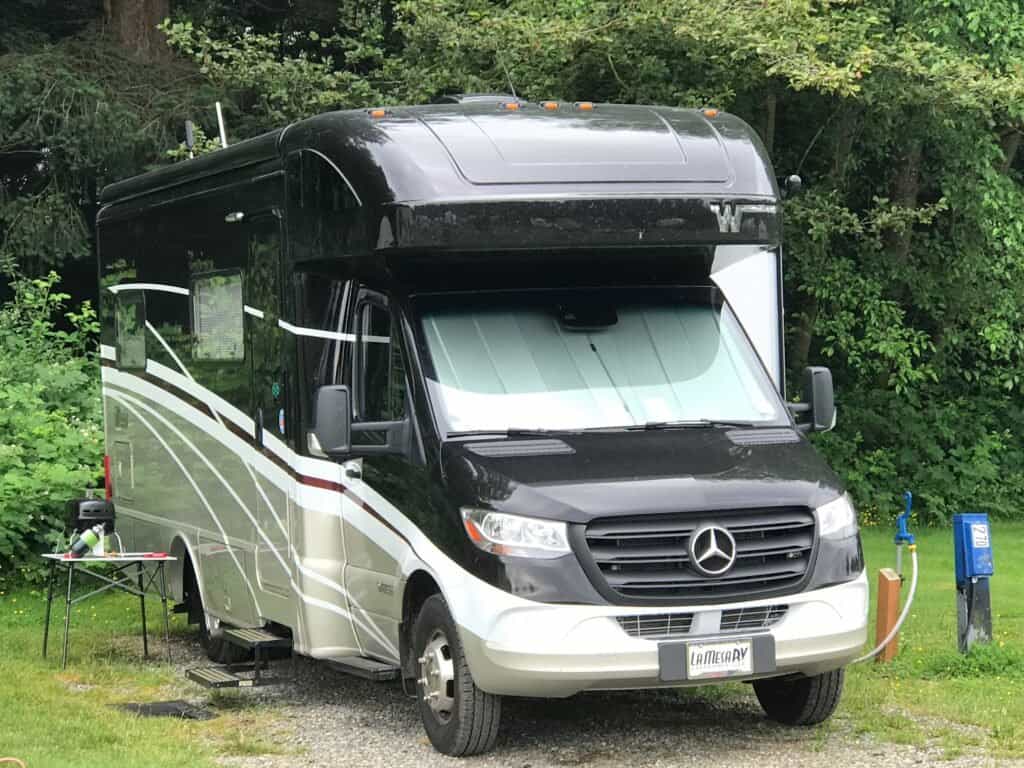
What is the best RV size?
Is there a point when a small camper is just too small to be functional? I believe that depends on your needs and goals. We camped next to a couple of women at Mt. Hood Village RV Resort who were camping in a tent. Again, it poured down rain for a solid week.
On this particular outing, the campsites were flooded, the streets where flooded, every time we took our dogs out for their break, they came back in with their 16 wet paws tracking water from one end of the rig to the other, and they had to be dried off and cleaned up every time.
But we felt blessed by comparison to the gals in the tent. They spent most of their time in their car trying to get warm and dry out. I can’t imagine how wet the inside of their tent was or how miserable that camping trip must have been. I’m pretty sure that these two gals would have loved a bed in a teardrop trailer to at least get out of the rain for the night. So, a really small camper would have been an improvement for these two campers.
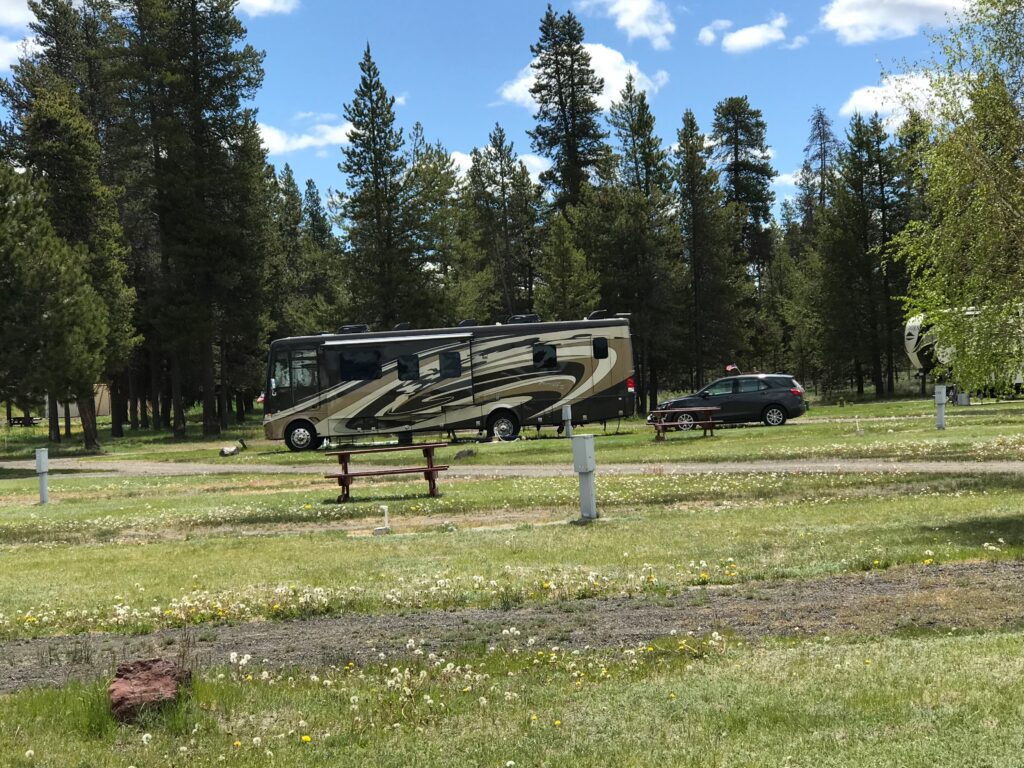
So, how small is too small? Well, the answer is… it depends on your needs, and where you’ll be camping. There are pros and cons to all the different types of RVs.
Take this video by Drivin & Vibin for example, on 5 reasons to avoid pop-up campers:
Also check out our previous article on The Truth About Small RV Bathrooms.


